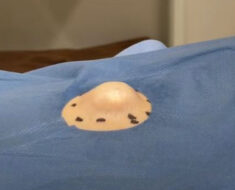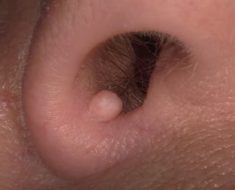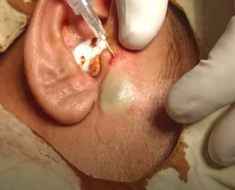Watch the video on Youtube
Severe acne can be a distressing condition characterized by a high number of inflamed and infected pores on the skin. It can manifest as various types of acne lesions, including papules, pustules, nodules, and cysts.
Several factors contribute to severe acne:
- Excess Sebum Production: Sebum, an oily substance produced by the skin’s sebaceous glands, can combine with dead skin cells and bacteria to clog pores, leading to acne.
- Bacterial Overgrowth: Propionibacterium acnes (P. acnes) is a type of bacteria that lives on the skin and can contribute to acne when it overgrows within clogged pores, causing inflammation and infection.
- Hormonal Changes: Fluctuations in hormone levels, such as those occurring during puberty, menstruation, pregnancy, or certain medical conditions, can stimulate excess sebum production and contribute to acne development.
- Genetics: A family history of acne can increase the likelihood of developing severe acne due to inherited factors influencing skin type, pore size, and oil production.
- Environmental Factors: Factors such as humidity, pollution, and certain skincare products or cosmetics can exacerbate acne by irritating the skin or clogging pores.






